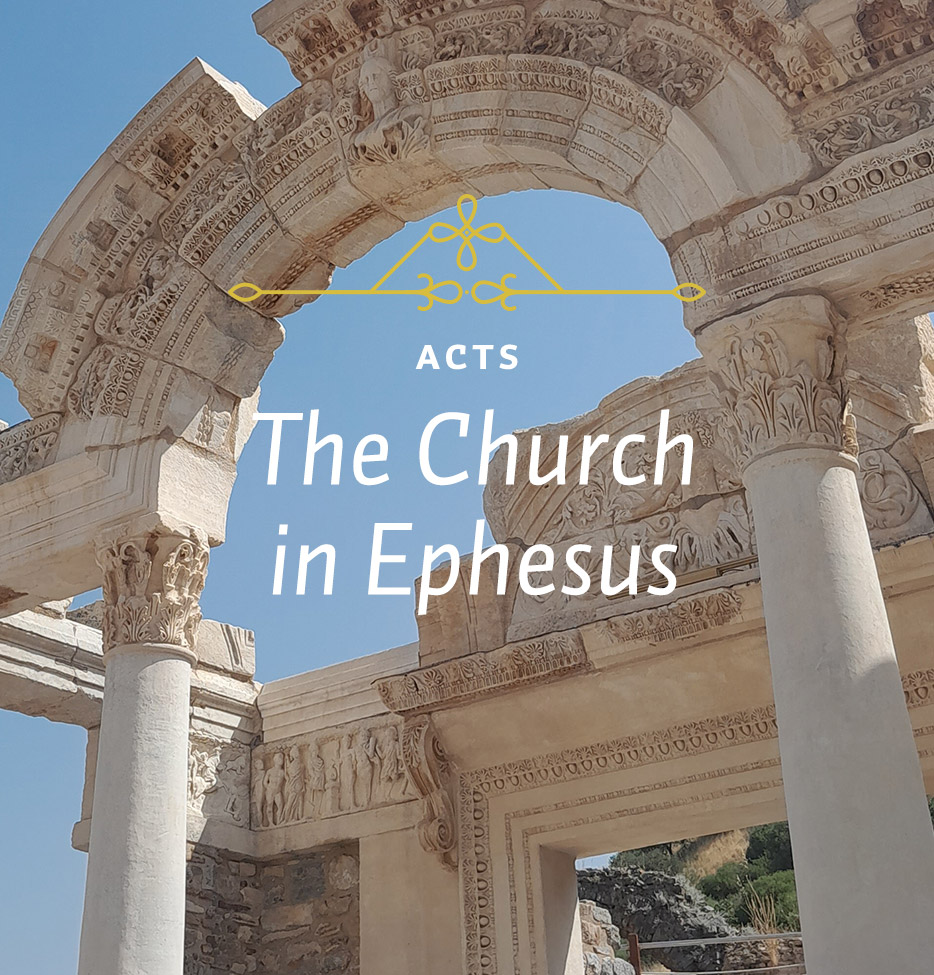There are two more points to Paul’s strategy that are worth mentioning before moving on to the results.
4. The fourth thing Paul did was conduct follow-up visits. He had done that with other churches already. As a matter of fact, it was on such a follow-up journey that he first stopped at Ephesus. He had trouble getting back to Ephesus. In fact, he only got as far as Miletus, a city nearby, where he called the Ephesian elders to him because of the shortness of time available on his return journey to Jerusalem. He was arrested there and sent to Rome. As far as we know, he never got back again. Nevertheless, his strategy was to return to where he had been, to see how people were doing and, where possible, to help correct any problems.
5. The fifth part of his strategy was written communication. That is, he wrote letters or, as we would say, provided written lessons for the people. In this case, he wrote Ephesians, a six-chapter (or six-lesson) course on what it means to be a Christian. This letter talks about the sovereignty of God in salvation, rebirth, the fact that we are ordained by God to do good works, the nature and function of the church, relationships between people—husbands and wives, slaves and masters, children and parents—and then, finally, the nature of our spiritual warfare and our weapons for it. Paul must have realized how important that last point was for this particular community.1
After an investment in time like that, what were the results? If we think of this in contemporary terms, we would have to say that we have seen Paul’s objectives and have studied his strategy. Now we want a period of evaluation. What happened? There were three great blessings.
1. There were miracles as the power of God was seen. The miracles were not done first to attract people, which is what some are saying should be done today. Rather, the preaching of the Word came first, which God blessed, and then the miracles followed—in this case, through Paul as God by this means authenticated his message.
2. There were changes in the lives of the believers. Many of them had been involved in the occult, as I indicated. But as the Gospel was preached and as the lordship of Jesus Christ was emphasized, they saw that it was not possible for them to confess Jesus as Lord and still cling to their occult practices. They could not keep one foot in the church and the other in the world. So they repented of that sin (v. 18), and then brought their occult objects and had them destroyed, particularly the magic scrolls that contained incantations.
Luke puts the value of the objects at 50,000 drachmas. A drachma was a day’s wage. So if a day’s wage was roughly a hundred dollars (or an annual income of $25,000), the equivalent of 50,000 drachmas would be about five million dollars in our currency. That may be a high estimate, but by any estimate it was a large sum of money. What these Christians did, as they heard the Gospel and came to understand what they owed to Jesus Christ, was to “lay it on the line,” as we would say. Anything in their lives that was holding them back or indicated a divided allegiance was rejected.
If you have something in your life like that, it is important that you get rid of it. I do not know what it is, but whatever it is, if there is something you are hanging onto and do not want to give up, but you know is inconsistent with your following after Jesus Christ, you need to get rid of it, as these Ephesian Christians did.
3. “The Word of the Lord spread widely and grew in power” (v. 20). I link that verse with verse 10, earlier in the chapter, which says that as a result of Paul’s teaching in the lecture hall of Tyrannus for two years, “all the Jews and Greeks who lived in the province of Asia heard the Word of the Lord.” There is a difference between those two sentences. As a result of Paul’s consistent teaching, everybody heard the Gospel. But that is not the same thing as saying that the people who heard believed. However, verse 20 tells us that it was when the Christians really “laid it on the line,” as it were, that the Word of the Lord not only spread widely but “grew in power.” In other words, at this point the people of Asia not only heard the Gospel but believed it and began to follow Christ. What happened in Ephesus should be a challenge for Christians in cities everywhere.
1Roger S. Greenway, Apostles to the City: Biblical Strategies for Urban Missions (Grand Rapids, MI: Baker, 1978), 87-95.






